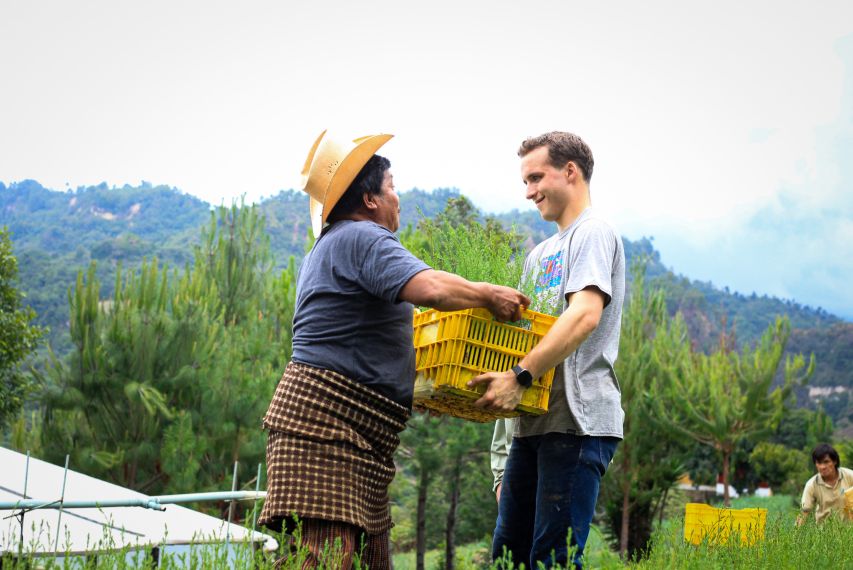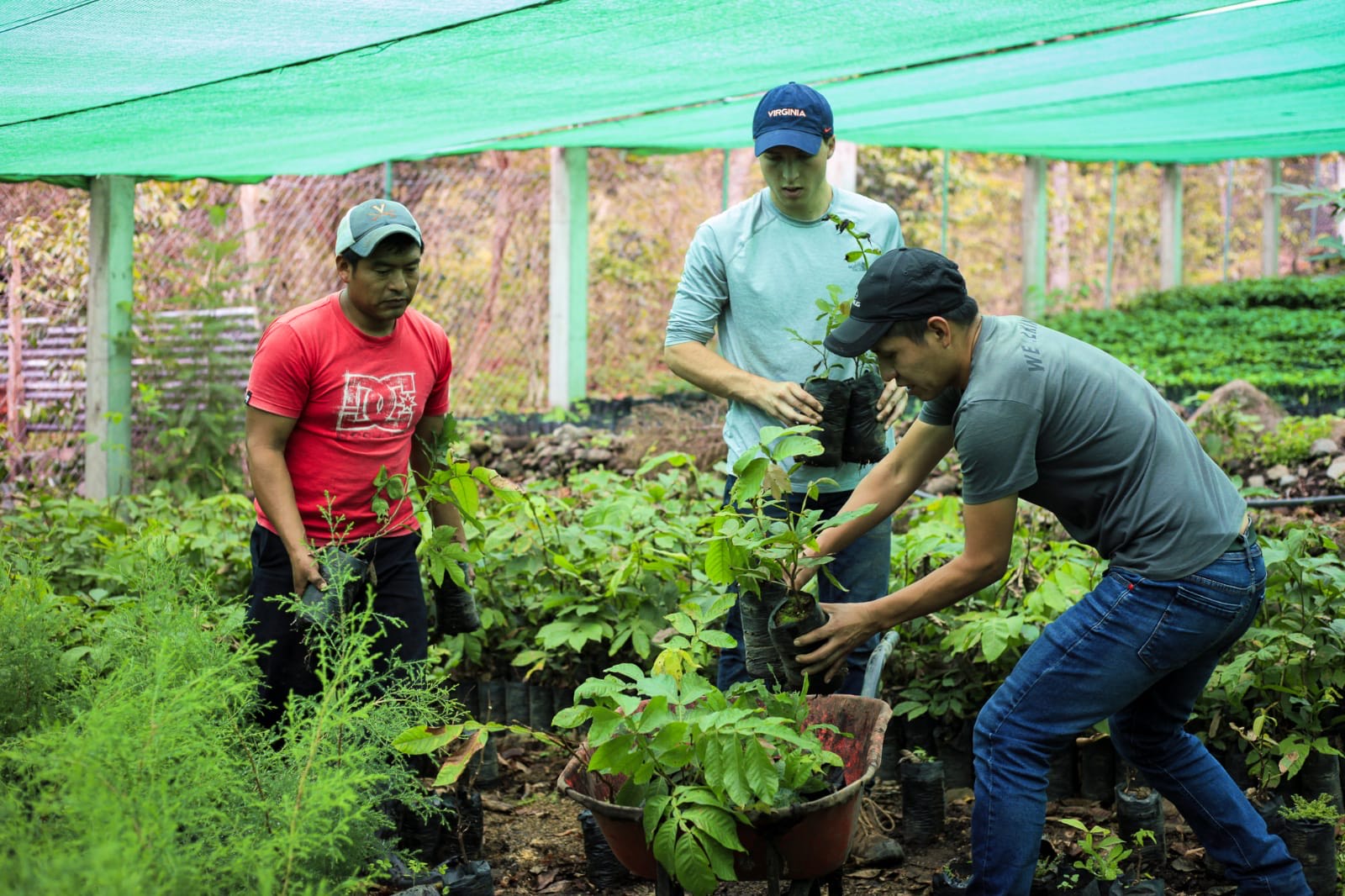hird-year civil engineering major and Spanish minor Reese Hertel learned to appreciate nature while growing up in Charlottesville. Now, he seeks to bring his passion for the environmental global, interning in Guatemala and studying in Valencia to prepare himself for career as a Latin America-focused environmental engineer.
This past summer you served as an environmental conservation intern in Guatemala. Tell us more about your experience.
Hertel: This past summer, I interned with Wellkind Guatemala, a small nonprofit organization located in the Mayan village of Tzununá, Guatemala. Wellkind is an NGO with programs that support environmental and economic regeneration through community empowerment. As a member of the reforestation team I supported the distribution of nearly twenty thousand native trees to over 150 families. In total, the program reforested 22.2 hectares of land, an area equivalent to almost 55 football fields.
I arrived before the planting of the trees began, so I was able to participate in all aspects of the program, including teaching conservation classes to community members, surveying prospective planting sites, collecting trees from local nurseries, and distributing trees to local families. After distribution, I spent time visiting sites where trees were planted and during these visits I trained the local team in the use of GPS coordinates and data collection. I used a digital mapping program called ArcGIS to create an interactive map displaying plots of each reforestation site. This data collection and visualization platform will enable the Wellkind team to track the progress of the reforestation program for years to come. I received funding for the internship through the Rodman Scholars program and the Engineering Career Center. I'd like to thank these university resources for providing me with funding that allowed me to have this experience.





